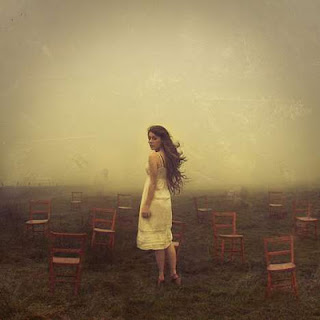Words Shining in the Night
By Kathryn Stripling Byer
Nothing brings our language into brighter focus than religious holidays. As we gather to
hear the words of this holiday season, we have lately become more aware of how those
words can both bind us together and push us apart. Just last Christmas, there was an
uproar over greeters at various stores using Happy Holidays instead of Merry Christmas,
as if the former somehow diminished the latter. Yet, many Americans do not celebrate a
traditional Christmas and many others do not celebrate it at all. Some, like certain Native
American tribes, never have, welcoming the solstice instead with their age-old earth-
based rituals.
So, what to do in our increasingly pluralistic society, where Latino, Arabic, African, and
Asian voices are joining our own? Can we agree at least on the meaning of this yearly
turning, that it pulls us back into the light, if we let it? And that the light can bring us
together, if we let it?
Perhaps learning some new words for light would be a good place to start. Tara, for
example. We English speakers think of Ireland and Scarlett O’Hara’s plantation. But the
word is also Urdu/Hindi for star, descended from the Sanskrit for “shining.” And this
time of year the star shining in the night carries special significance. In Spanish it is the
beautiful word estrella, and in French, etoile. The German star rings in the season as
stern, whose light cuts through the darkness and leads the way to revelation. In Arabic,
the haunting word shihab means flame. How can we deny this light shining in the
darkness, regardless of which word a culture uses to say it? We all light our candles this
time of year and watch the flames dance in the night.
I like the word shihab because it is the given name of a poet I admire, Naomi Shihab
Nye, American-born daughter of a Palestinian journalist and an American Montessori
teacher. For years she has worked to bridge cultural and religious differences, to heal the
divide that keeps us from being able to communicate with one another. Her voice shines
like a candle flame in this season’s dark night of suffering and war.
Her poem “Red Brocade,” begins: The Arabs used to say,/When a stranger appears at
your door,/feed him for three days/before asking who he is,/where he’s come from,
/where he’s headed./That way he’ll have strength/enough to answer./Or, by then you’ll be
/such good friends/you don’t care.
Let’s go back to that, she pleads in the line that follows. No matter the language used, this
time of year we call out to light, not only to the flame of the sun returning to our
hemisphere, but also to the light of understanding. This season challenges us to believe
that our words for that light matter. Call it luz, lumiere, shihab, or tara, it means the same
thing: the realization that we are called by the light to live together in peace.
from Language Matters, NC Arts Council Site























